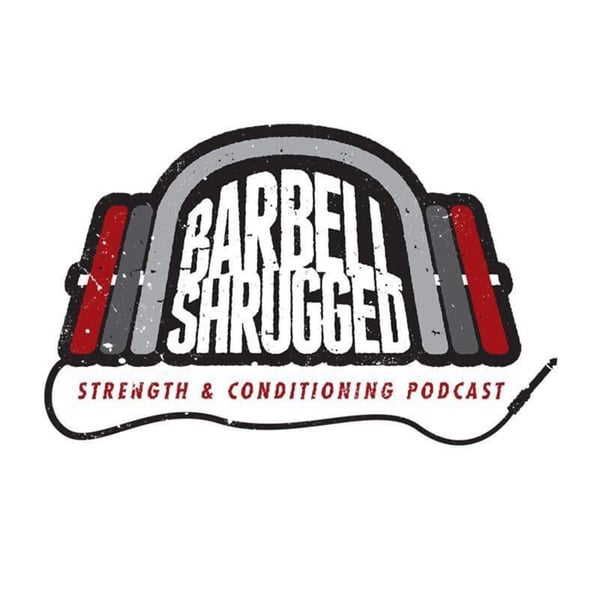The Science on Motivation W/ Lenny Wiersma
Barbell Shrugged
Doug Larson
4.7 • 2.8K Ratings
🗓️ 28 June 2017
⏱️ 81 minutes
🧾️ Download transcript
Summary
As athletes, the pressure to win has a very strong effect on us. The best athletes in the world are not only the strongest, or the fastest, but the ones who can keep their emotions in check during competition. Emotions before and during competition can define and influence how you perform. These emotions aren't just limited to the negative ones like fear, and anxiety, but the positive ones too. For example, too much confidence and a cocky attitude can leave an athlete ill prepared for a competition.
To get a better understanding of how emotions affect our performance, we visited sports psychology expert, Dr. Lenny Wiersma, and Dr. Andy Galpin at Cal State Fullerton to dive into the science behind motivating athletes and developing a champion mindset. Renowned and respected in his field, Dr. Wiersma has worked with some of the top athletes in different sports including several CrossFit and endurance athletes.
In this episode, you'll learn how he helps top athletes develop a champion mindset, strengthens their emotional muscles and breaks through mental barriers. You'll also learn how to start developing your ability to own your emotions and adopt a growth mindset around your training and life. We'll also touch on how, as coaches, we can better communicate with our athletes and mentally give them what they need to succeed and excel.
Whether you are a competitive athlete or pursuing fitness for life, there are a lot of powerful take aways in this one. Developing mindfulness, harnessing your emotions, practicing being present and taking ownership for your performance can translate over to all aspects of life and help you inside and outside of the gym.
Enjoy the show,
Mike
Mike
Transcript
Click on a timestamp to play from that location
| 0:00.0 | So you have two things. You've got motion, which is doing something, then you have emotion, |
| 0:07.8 | which is feeling like doing something. So a lot of people put the emotion first. I have |
| 0:14.5 | to feel motivated to do something for me then to actually do it. But I want to see if they |
| 0:19.4 | can reverse that. So what happens if you just start doing it? |
| 0:30.6 | Well, I'm going to Barbell's truck. I'm Mike Blitzer here with Doug Larson. Dr. Andy Galpin, |
| 0:58.3 | and we're here at Cal State Fullerton, and we're here with Dr. Lenny Wearsma. |
| 1:05.9 | You're a sports psychologist, your professor here. And you primarily work with extreme sport |
| 1:12.8 | athletes. You've also worked with USA Swimming. You're the Horde, Horde, Horde Head, |
| 1:18.8 | a sports psychologist with USA Swimming. And what are some other, what are some of your big |
| 1:24.1 | accomplishments? You've been doing this with 17 years? Yeah, I got my PhD in 2000. And so I've |
| 1:30.0 | been basically working the field since that time. So it's true, your John Cena's head sports |
| 1:35.2 | psychologist. The early person you've never worked with? No, that's not true. He was my most famous |
| 1:43.6 | former student, I'd say. Yep. And the reason why I'm sure he's a superstar. It probably was. |
| 1:48.8 | He swims so well because of me. Absolutely. Yeah. Yeah. |
| 1:52.2 | Accomplishments. You didn't prep me for that one. I'd say, you know what you've done. I say, |
| 1:58.4 | I say every time I have an opportunity to learn about a new area, that's what I consider |
| 2:04.2 | accomplishment to me. So if I'm asked to work with a sport or an area that I don't know a whole |
| 2:09.7 | lot about, I'm going to spend a lot of time in that environment, observing, interviewing people, |
| 2:15.7 | trying to really wrap my head around the demands of that environment because until I can do that, |
| 2:20.1 | who am I to be able to help people get through those demands, whatever they might be? |
| 2:24.4 | So I think I've gotten really good at being able to go into new environments and take a step back |
| 2:30.2 | and do a lot of study of it from my own perspective. And actually I think, you know, having someone from |
... |
Please login to see the full transcript.
Disclaimer: The podcast and artwork embedded on this page are from Doug Larson, and are the property of its owner and not affiliated with or endorsed by Tapesearch.
Generated transcripts are the property of Doug Larson and are distributed freely under the Fair Use doctrine. Transcripts generated by Tapesearch are not guaranteed to be accurate.
Copyright © Tapesearch 2025.

